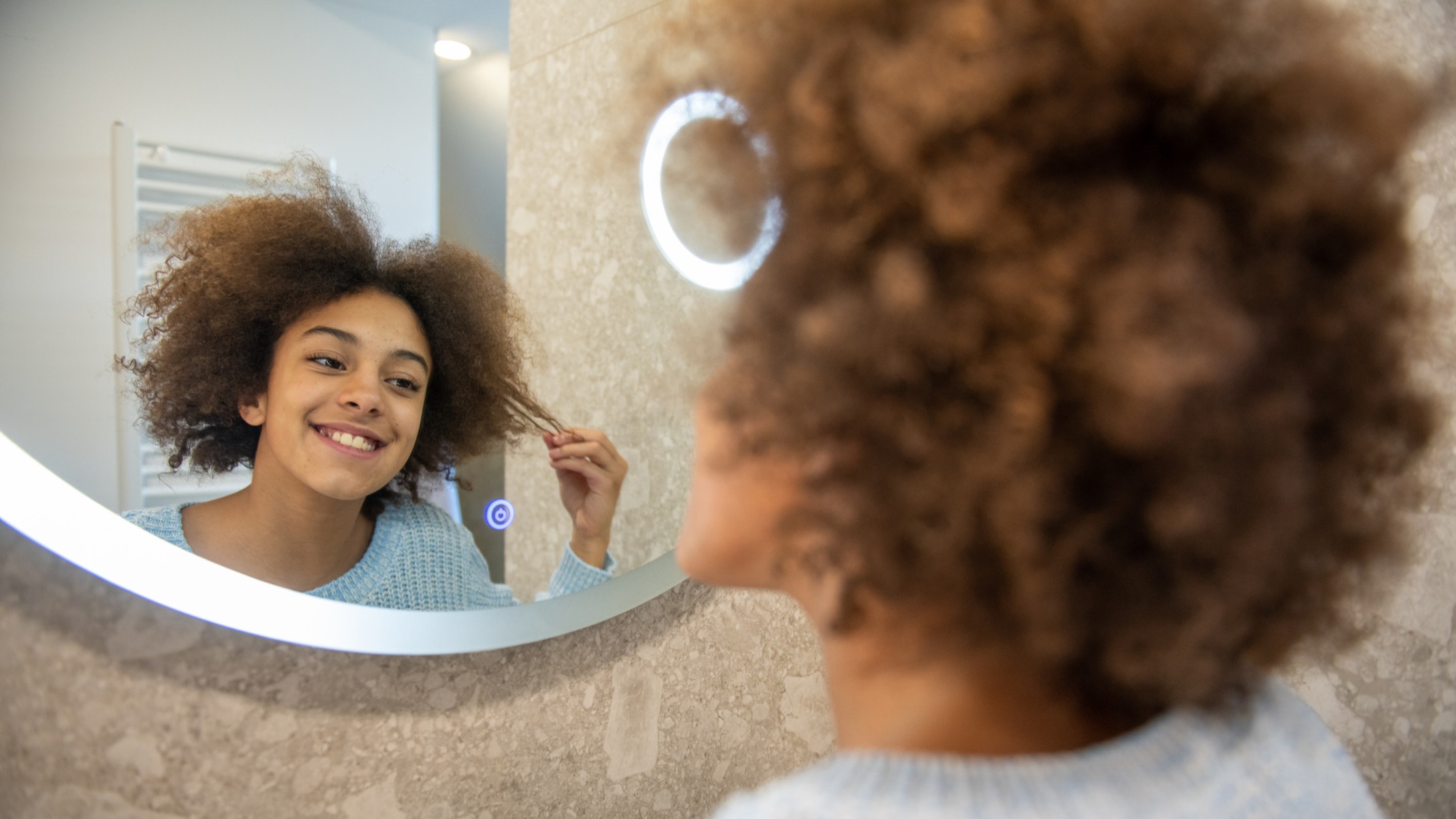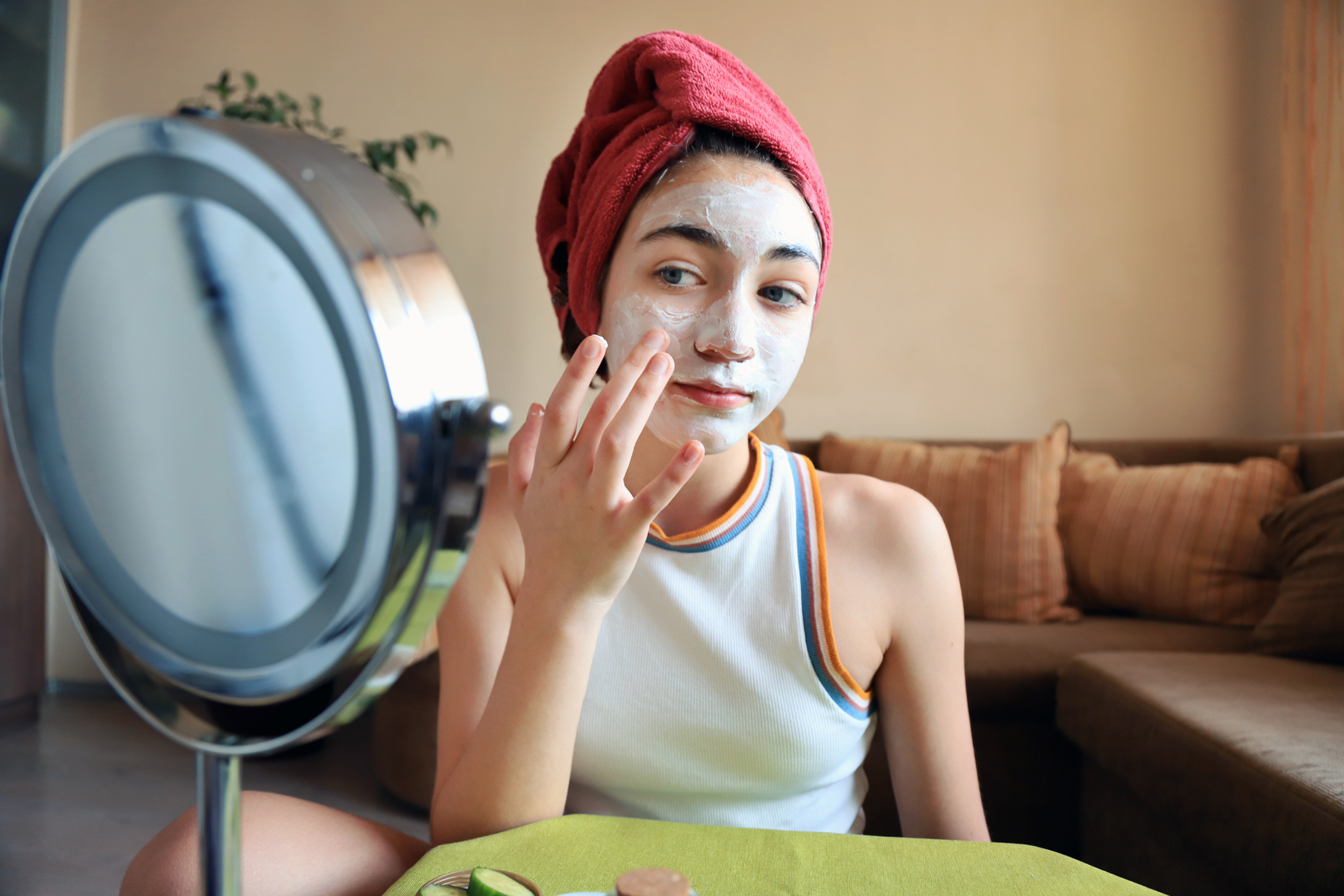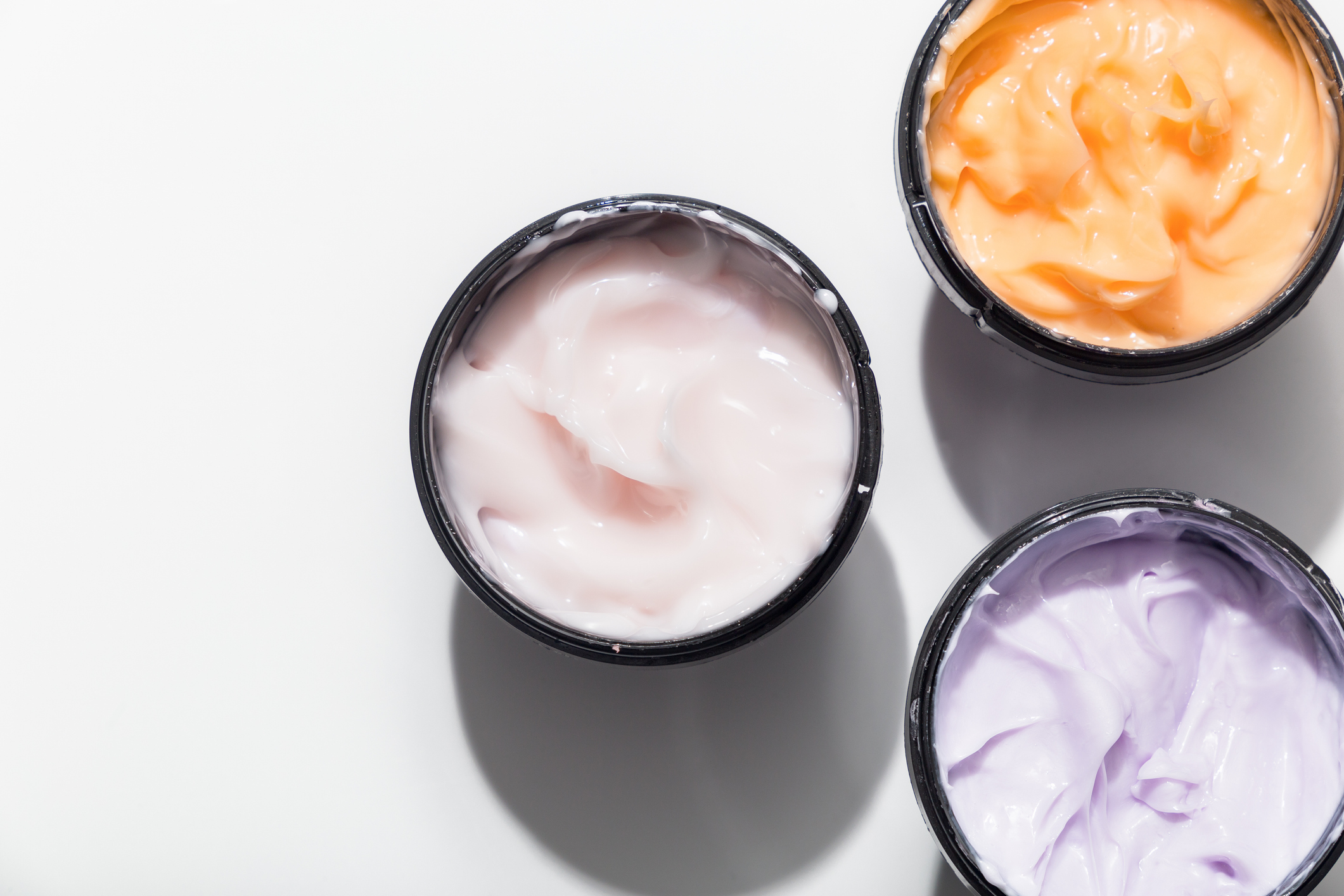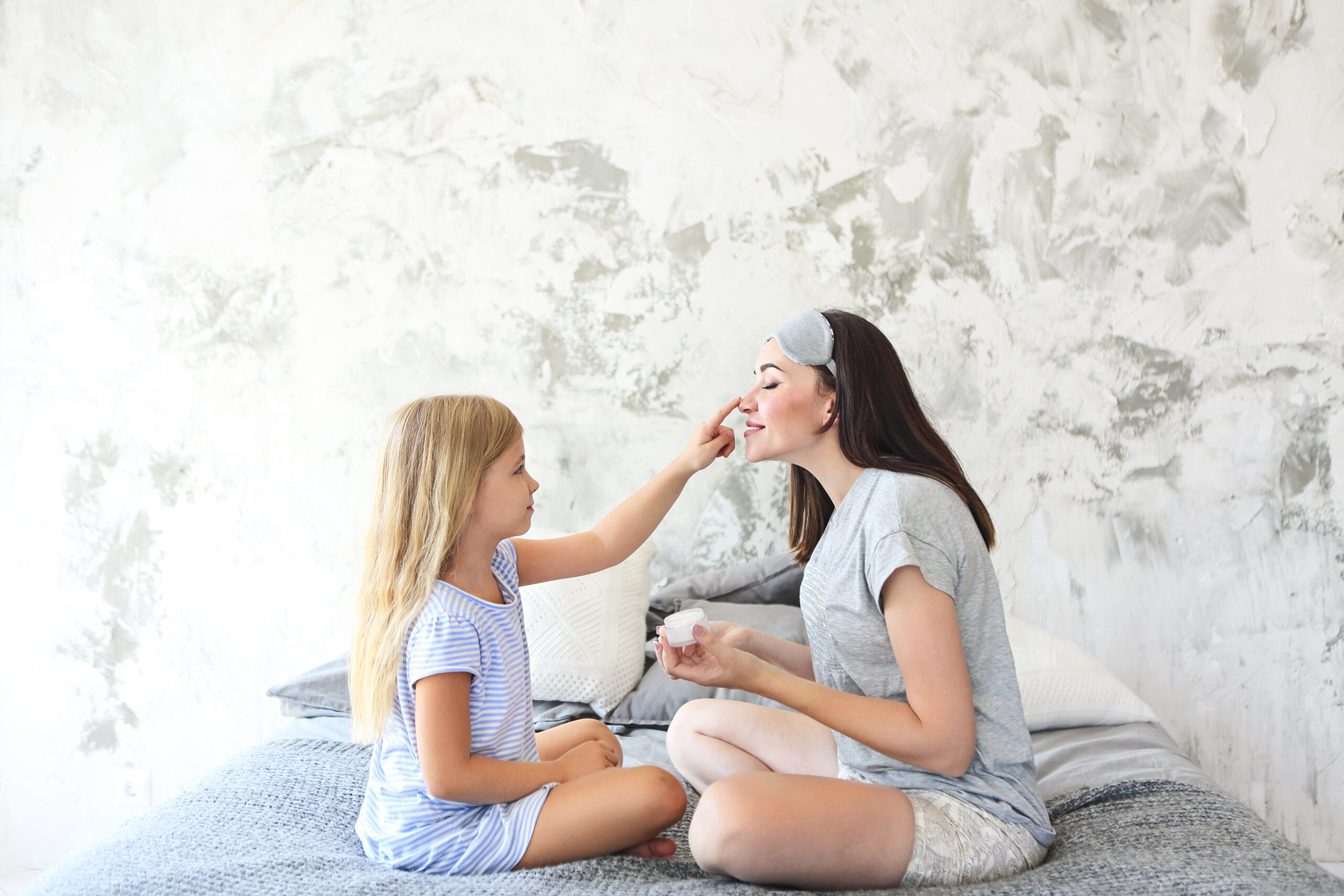
Kids aren’t strangers to the world of digital skin care marketing. Their social media presence inspires trends like “Sephora Kids,” where kids younger than 13 showcase their favorite beauty products on social media apps like TikTok, Instagram, and Snapchat.
Parents can better analyze this new childhood fascination by reading about why skin care has become more important to modern young people than it ever was to the generation that came before them. And pick up some tips on how their tweens can navigate the digital world while protecting their mental health.
More from CafeMom: 20 of the Best Skin Care Trends at Every Price
Why do tweens care about skin care products?

Research shows 46% of teens between 13 and 17 are online constantly and 47% of the same demographic are online several times a day. Even kids between 8 and 12 are spending time on Instagram, Facebook, Snapchat and TikTok. They’re following trends and the celebrities or influencers leading them, introducing kids to skin care products marketed toward audiences of all ages.
Remember, children also pick up on societal norms and judgments earlier than many parents realize. Kids as young as 2 can understand things like body shaming and internalize it. If they already have low self-esteem when encountering influencers advertising skin care products, the young kids and tweens may think the products are the key to social and self-acceptance.
Do tweens need skin care products?

Learning about skin care products isn’t inherently bad for kids. Medical professionals report nearly 80% of people between 11 and 30 develop recurring acne. Treating childhood skin health challenges with products designed for young people can be helpful, especially when recommended by a pediatrician or dermatologist.
Exposure to skin care products may become an issue when young children or teens start thinking they need those products to change their appearance. Given that 46% of teens ages 13 to 17 feel like social media makes them feel worse about their bodies, it makes sense that discovering products that could supposedly fix their insecurities would drive kids toward the skin care world.
More from CafeMom: 18 Books That Will Help Teens Get Through Their Own Body Image Issues
Find ways to support your tween’s mental health.

You can help your tween find the balance between enjoying skin care products and loving themselves without trying to change their appearance. Use these tips to navigate the challenge with your child regardless of their age:
• Chat with a dermatologist
People of all ages seek help from dermatologists for various reasons. The dermatology industry continues to grow every year as more and more people become interested in caring for their skin. A dermatologist can talk with your tween about their skin care concerns. If there’s a valid reason for needing products, like acne-fighting face washes or soothing lotions for sensitive skin, your doctor can recommend science-backed solutions that may be identical or different from those advertised on your child’s social media feed.
• Talk about their favorite influencers
Brands know 22% of teenagers follow beauty influencers, as well as more kids under 13. They partner with those influencers to establish brand loyalty in a young audience that lasts for years. It all depends on each follower’s parasocial relationship and the resulting trust with the influencers.
Encourage your tween to talk about the influencers they love. It’s important to build trust with your child or teen so they know you value their thoughts. As your child talks about who they follow and why they love them, you’ll open the door for discussing what the influencer promotes in a way that makes your child feel safe to talk freely.
• Discuss products before buying them
Once your child or tween feels comfortable talking about the latest skin care products they want, ask them to reflect on what that product will do for them. Does your child want to treat something like itchy skin or do they want to look a certain way to feel included in a social group? You’ll feel more comfortable splurging on your child’s wish list when you know you’re supporting their desires for healthy reasons.
• Limit social media time
While the American Academy of Child and Adolescent Psychiatry recommends no more than one to three hours of noneducational screen time daily for kids ages 2 to 5, there’s no recommendation for tweens. Consider your child’s school or extracurricular responsibilities in addition to how they help out at home. You’ll find the best balance by talking with your tween about when they start feeling bored or negatively affected by social media compared to their free time.
Ask your tween to share what they're watching with you to bond over funny videos or content they enjoy. As you build trust with your child, you’ll understand how time spent online in different activities is affecting them.
Help your child develop a healthy body image over time.

As your tween or child spends more time online, you can help them strengthen their body image by fostering trust and healthy conversations. Hear them out and ask a dermatologist for guidance if needed. You’ll find a healthy balance of your child’s screen time and product usage that also builds their trust in your guidance.



